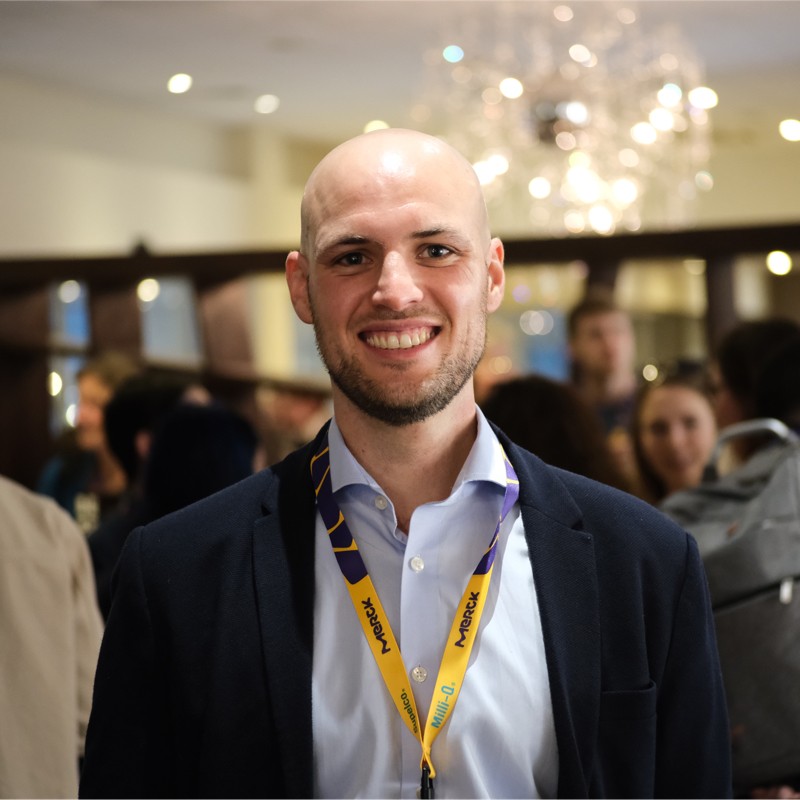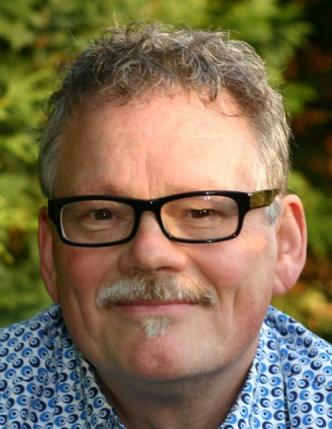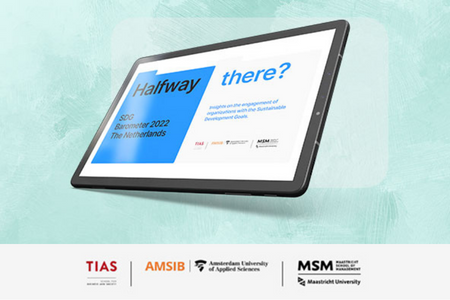UM SmartBite team wins Top Sector Chemistry Student Competition with innovative teeth grinding sensor
The SmartBite team, consisting of UM students Onno Akkermans, Mitch Spronk and Pegah Keshaniyan, won the second Top Sector Chemistry Student Competition on 1 December during CHAINS 2015. The team members, all students in the Maastricht Science Programme, developed a sensor to detect awake bruxism, or teeth grinding during the day. They were each presented with a €1,000 cheque.
Of the nine submissions, four were nominated in June. After being nominated, the teams got to work on their research studies. The SmartBite team spent the past few months developing a prototype for a sensor that can detect awake bruxism, or teeth grinding during the day. This sensor is the smallest, thinnest and most sensitive sensor to date. Perhaps more importantly, it can be custom-made to fit an individual's mouth. The team presented its first prototype on 6 July during the Engineering of Functional Interfaces (EnFi) conference in Hannover. They also submitted a promising article to the leading scientific journal PSS(a).
'SmartBite found a creative way to use chemistry to solve a relevant problem,' says Gerard van Harten, figurehead of the Top Sector Chemistry, when asked about the jury's choice. 'The team developed a clear plan and a multidisciplinary approach, which led to wonderful and immediately applicable results. They offered a clear explanation during their presentation and answered the jury's questions with conviction.'
From student project to funded research
Theo Kluskens, a dental gnathologist affiliated with the Dental, Oral and Maxillofacial Surgery Department at Maastricht UMC+, initiated the creation of this device. He will use the sensors to conduct new research on monitoring, preventing and treating awake bruxism. Kluskens contacted IDEE-MUMC+, the engineering firm at Maastricht UMC+, earlier this year to develop a prototype as part of a student project. The initial results were so impressive, the group was encouraged to continue their research as part of a small-scale funded research project outside their study programme.
The Maastricht Science Programme is a selective, three-year science bachelor's programme that trains students in the tradition of the liberal arts and sciences. Students are encouraged to develop themselves freely in biology, chemistry, physics, mathematics and similar interdisciplinary subjects. They can determine their own curriculum and choose to specialise in a specific subject or combine several specialisations in a unique way.
In the Top Sector Chemistry, Dutch companies, researchers and government organisations collaborate on green and sustainable solutions that address important social challenges in the ambitious Horizon 2020 programme. The sector also focuses on supporting talented students who are capable of accelerating innovations within the chemistry field.
Also read
-
A breakthrough in cultured meat research-animal component free production
-
The Netherlands Organisation for Scientific Research (NWO) has awarded a grant under the SGW open competition to a research proposal written by Prof Dr Math Noortmann (Institute for Transnational and Euregional cross border cooperation and Mobility / ITEM) and Prof Dr J.B.M. Koning (UM School of...
-
Since the 2015 adoption of the Sustainable Development Goals (SDGs) and the 2030 deadline, the first Dutch national SDG Barometer study shows that there is a lot to be optimistic about.


